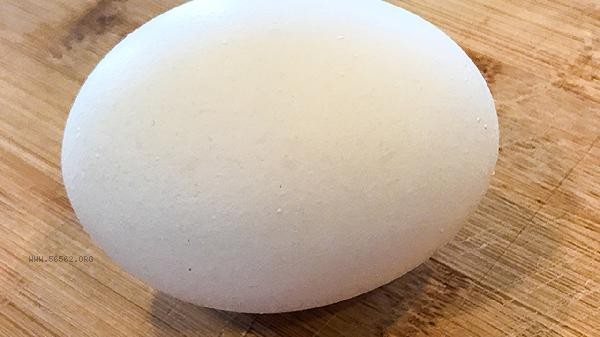The peeling and sticking of boiled eggs may be related to factors such as freshness, cooking method, and cooling method. The main reasons are that eggs are stored for too long, boiled in boiling water and not completely cooled, and the inner membrane of the eggshell is not separated.

1. Freshness of Eggs
The inner layer of the eggshell of fresh eggs is tightly bound to the protein, making it easier to peel off after cooking. Eggs stored for a long time, as carbon dioxide is lost through the pores of the eggshell, the internal chamber expands, leading to increased adhesion between the protein and the inner membrane of the eggshell. Choosing eggs with a closer production date can reduce the probability of shell sticking.
2. Cooking temperature control
Severe changes in water temperature can cause protein to stick to eggshells. When the cold water is slowly heated in the pot, the inner membrane of the eggshell gradually separates from the protein. If an egg is directly placed in boiling water, the sudden thermal shock will cause the outer layer of protein to quickly solidify and adhere to the eggshell. It is recommended to heat the water to a slight boiling state with a small fire.
3. Cooling treatment method
After cooking, immediately rinse with cold water to help separate the eggshell from the protein. The principle of thermal expansion and contraction creates small gaps between eggshells and proteins, but insufficient cooling time or low water temperature can affect the effect. The ideal way is to soak the boiled eggs in ice water and gently crack the eggshell to form a water seepage channel.

4. Eggshell inner membrane state
The egg inner membrane is composed of keratin, and its toughness varies with pH. The weak alkaline environment of fresh eggs keeps the inner membrane elastic, and prolonged storage can weaken the alkalinity and cause the inner membrane to become brittle. Adding a small amount of white vinegar or salt during cooking can adjust the pH value and promote the separation of the inner membrane and protein.
5. Mastery of Cooking Time
Excessive cooking time can cause protein to solidify excessively, and sulfides react with iron elements to form a gray green layer of ferrous sulfide, increasing the difficulty of peeling. It is recommended to boil fully cooked eggs in water for 8-10 minutes and soft boiled eggs for 5-6 minutes. Accurate control with a timer can prevent excessive protein aging.

When cooking eggs in daily life, you can choose fresh eggs, put them in cold water and heat them over low heat. After cooking, immediately chill them and gently roll and crack the eggshells. If the shell sticking phenomenon occurs for a long time, it is necessary to check whether the egg storage conditions are suitable and avoid placing the egg in a damp or temperature fluctuating environment. Keeping the water temperature stable during the cooking process and adjusting the cooking time according to the consumption needs can ensure both taste and easy peeling.









Comments (0)
Leave a Comment
No comments yet
Be the first to share your thoughts!